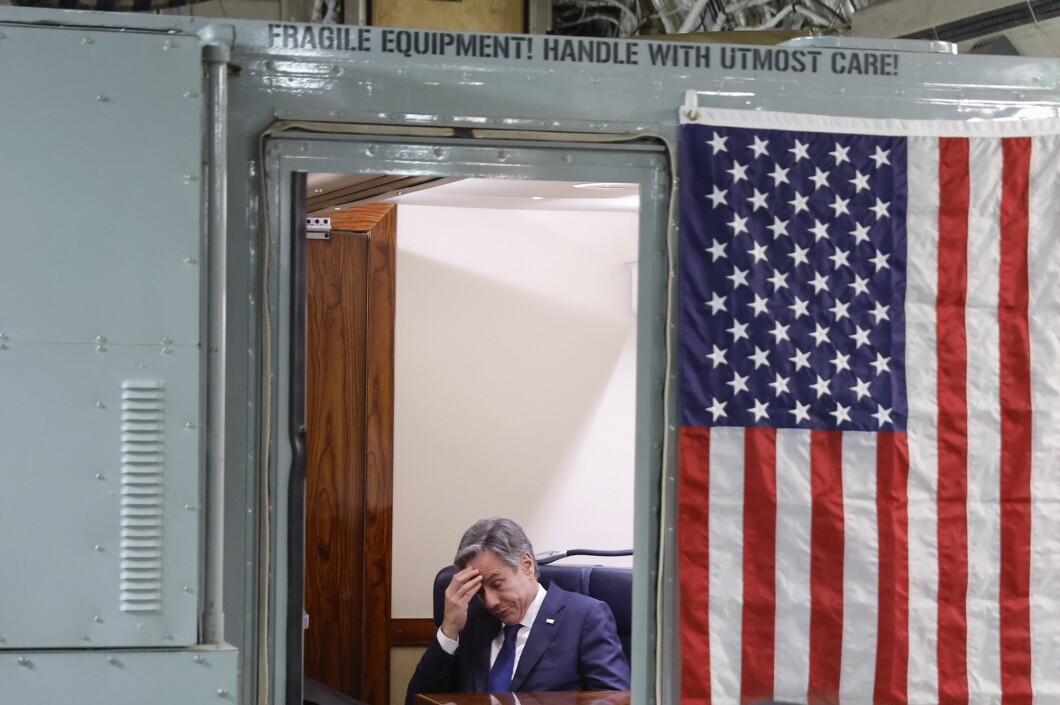
Israel has “significantly refined” its military campaign against Hamas following U.S. pressure to curb Palestinian civilian casualties in Gaza, according to a senior U.S. official.
“The overall scale of their campaign [is expected to undergo] a decrease in what we’ve seen and more of a tactical focus on the ground campaign as they’re working to clear out some specific areas where there are tunnel complexes and things,” a senior administration official told reporters Friday evening. “So, that’s what we anticipate seeing over the next week.”
SAM BANKMAN-FRIED FOUND GUILTY OF FRAUD: FTX FOUNDER FACING 100 YEARS IN PRISON
That forecast points to a new phase in the military operation and an expansion of humanitarian aid into the Gaza Strip, after weeks of bombardment. The shift could also portend another step toward the mass release of the hostages seized by Hamas in the Oct. 7 terrorist attack, with President Joe Biden’s administration seeking “a very significant pause in the conflict” to enable their departure.
“So there’s an active process going on here with multiple lines of effort, including indirect engagement to try to find a framework to get the hostages out of Gaza,” the senior administration official said. “It would take a very significant pause in the conflict in the fighting to be able to do this. It is something that is under a very serious and active discussion, but there is no agreement as of yet to actually get this done.”

Secretary of State Antony Blinken hinted at that effort following a meeting with Israeli Prime Minister Benjamin Netanyahu on Friday. Netanyahu countered that Israel would not agree to any “temporary ceasefire that does not include the release of our hostages.” Israeli Ambassador Michael Herzog rejected “a ceasefire in the middle of the war because that means a victory to Hamas” on Thursday, but the senior U.S. official said Friday that one such agreement already has occurred.
“The two Americans who were able to get out a couple of weeks ago — was a bit of a pilot to see if it was possible. It is possible,” the senior administration official said. “There had to be assurances in place that they’d be able to travel safely, which was not a short distance to the border to get out. And so that had to be worked out. And so there was a time period for that, and it went generally fairly well like clockwork to get them out.”
Biden, Blinken, and other U.S. officials have emphasized Israel’s right to self-defense in the weeks since the attack, in which Hamas killed more than 1,400 people and wounded 5,400 more, according to Israeli figures. The soaring death toll in Gaza has made that task more difficult, particularly following a strike on a Hamas tunnel network that led to the destruction of a Jabalia, a neighborhood that dates back to the war that Arab states launched against Israel at its founding in 1948.
“We need to do more to protect Palestinian civilians,” Blinken said Friday. “It matters because it’s the right and lawful thing to do. It matters because failure to do so plays into the hands of Hamas and other terror groups. There will be no partners for peace if they’re consumed by humanitarian catastrophe and alienated by any perceived indifference to their plight.”
CLICK HERE TO READ MORE FROM THE WASHINGTON EXAMINER
Blinken reiterated that Hamas “cynically and monstrously uses [civilians] as human shields,” while the other U.S. official said the administration is “asking hard questions” about strikes that seem to kill too many civilians. The official added that the Jabalia strike killed “a battalion commander, a number of his leaders, and a significant contingent of that battalion” and suggested that the damage to the neighborhood was unforeseen.
“That entire block collapsed into the tunnel complex,” the senior administration official said. “The intent was not to collapse the city block. And the munition did not land on the city block. It hit the tunnel, and … the city block collapsed into the tunnel.”





